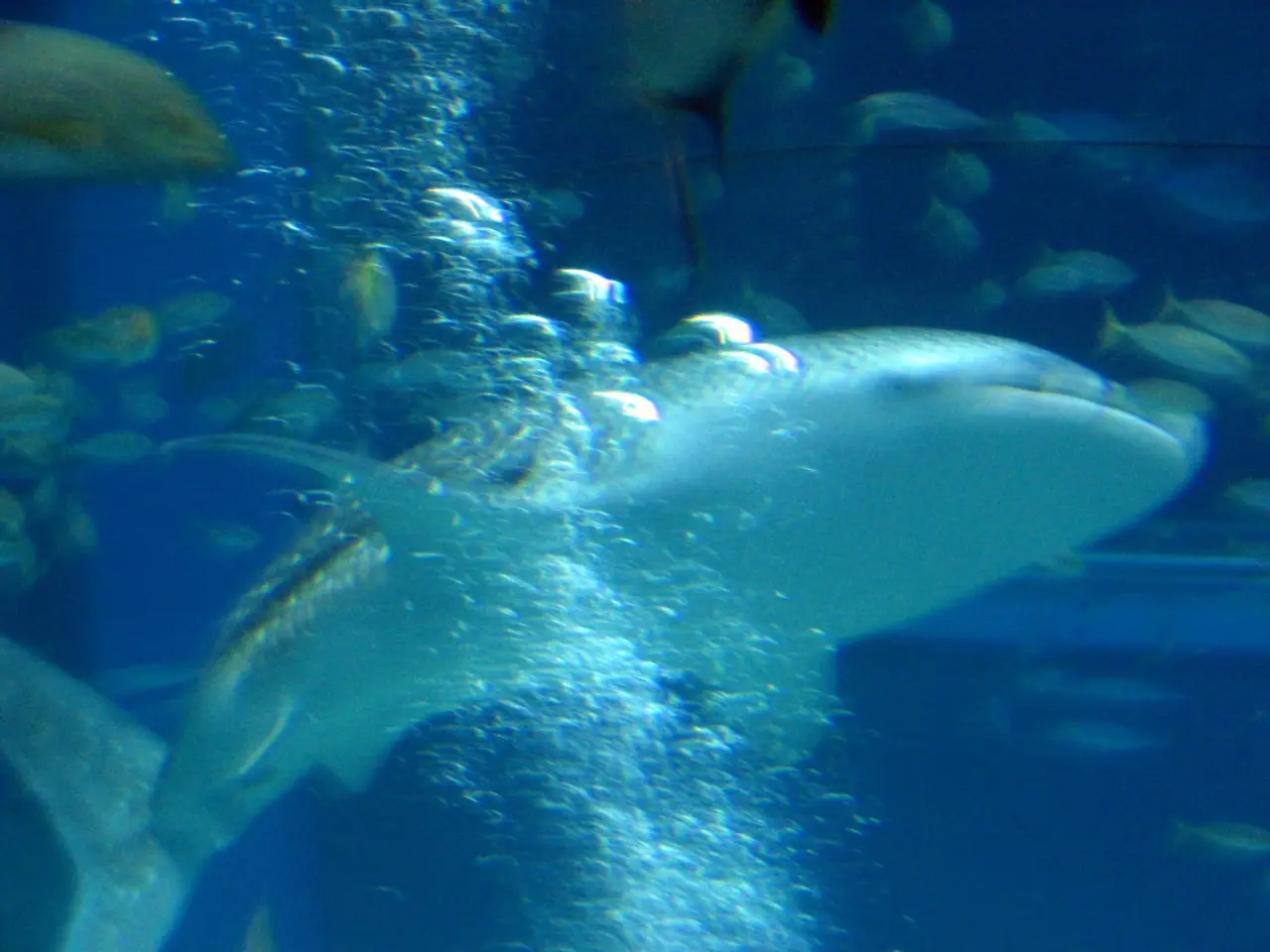Shark Preservation Undermined by 'Jaws' Pre-Launch Impact
When Jaws Roared, Sharks Screamed
Back in 1975, Jaws wasn't just a blockbuster movie. It scampered shark populations' serenity to smithereens! Before this cinematic behemoth, most beach-baskers gave nary a thought to what lurked beneath waves. But that haunting melody and that iconic dorsal fin? Sharks became public enemy number one!
The irony? The terror people felt didn't end at the cinema door. It bled into science, politics, and our understanding of the ocean. And here we are, half a century later, and sharks are still paying the price.
These Aquatic Ancestors Are in Freefall
Since 1970, shark populations in the open ocean have nose-dived over 70%. Overfishing is the main culprit, but the hysterical policy following Jaws' cultural backlash cannot be ignored. Governments worldwide jumped onboard the shark-cull bandwagon, rushing to implement protective nets, baited drumlines, and other measures supposedly for public safety. The problem? Many of these tactics don't really work, and they've been responsible for the mass slaughter of countless marine animals, like rays, turtles, and dolphins.
As shark numbers plummeted, ecosystems unraveled. You see, sharks are more than just big, toothy fish that love to make your heart skip a beat. They're apex predators that help keep marine systems balanced. Evict them, and you risk destabilizing entire food webs.
Marine Ecosystems on the Brink
Take coral reefs, for example. In these biodiverse hotspots, sharks help regulate mid-level predator populations, which, in turn, keeps algae-eating fish populations healthy. Without sharks, algae overgrows, coral suffers, and the ecosystem - home to thousands of species! - starts to die. That's not merely an environmental loss. It's an economic catastrophe too.
Scientists estimate that disruptions caused by shark declines could cost coastal economies billions of dollars. Coral reefs alone generate an estimated $36 billion in annual tourism revenues, and healthy shark populations are a major draw. In places like the Bahamas, Fiji, and Palau, shark tourism pumps tens of millions into the economy each year. However, some of these same nations have spent significant sums managing shark-human conflict, usually trying to balance public safety with tourism dollars.
Balancing Act: Shark Tourism vs. Public Safety
Take Australia, for instance. The government has poured millions into maintaining shark net and drumline programs along popular beaches. But studies show these precautions don't significantly reduce the risk of shark bites. On the contrary, they kill innocent (and sometimes endangered) species and drain budgets that could be better spent on education campaigns, improved tracking systems, and research into shark behavior.
Fear vs. Fact: Demystifying Sharks
The media doesn't help matters. Modern headlines about shark bites often use language that paints sharks as bloodthirsty killers. The truth? The odds of a fatal shark bite are one in 3.75 million. To put it into perspective, you're more likely to die taking a selfie or being struck by lightning. But logic rarely triumphs against fear, and for years, fear has ruled how we treat sharks in science, policy, and public opinion.
Ironically, the same fear that drove shark culling has also unleashed a global fascination with sharks. From Shark Week documentaries to Instagram influencers diving cageless, there's growing public interest in these animals. And that gives us a chance to rewrite their story. But changing perception isn't enough to save these magnificent creatures from the threats they face. It'll take stronger policies, international cooperation, and meaningful investment in shark conservation to undo the harm Jaws helped cast. Thankfully, things are looking up.
A Shark-Friendly Future
In recent years, more and more nations have begun to value live sharks over dead ones. Several countries are banning shark finning, or setting science-based catch limits. Marine protected areas are expanding, and various shark species are gaining government protection. But time is running out; many shark species are teetering on the brink of extinction, and without swift action, they could vanish within our lifetimes.
It's 2023, and we've got the advantage of hindsight, and the weight of responsibility. Jaws instilled fear - it's about time science and policy instill understanding: sharks aren't villains; they're vital. And if we don't protect them, we're the ones who'll end up with the real horror story.
Legacy of Fear: From "Jaws" to Conservation
The cultural impact of Jaws contributed to fear-driven policies and widespread hunting of sharks. Recent efforts focus on shifting public perception by promoting scientific understanding of sharks, showcasing non-lethal interactions and research through media campaigns, and encouraging international collaboration to replace reactive culling with evidence-based conservation strategies.
Coalitions and conventions like CITES, regulatory bans on harmful practices like finning, national endangered species protections, and public awareness campaigns are all part of the global push to halt overfishing-driven declines and counteract the lingering effects of fear-fueled shark persecution that followed cultural phenomena like Jaws.
- The legacy of 'Jaws' extends beyond the cinema, significantly influencing science, politics, and society's understanding of sharks.
- Overfishing, driven by irrational fear and policy reactions to 'Jaws', has resulted in a 70% decline in shark populations since 1970, causing marine ecosystems to unravel and threatening thousands of species.
- To mitigate these threats and protect sharks, there's a growing emphasis on encouraging scientific understanding and reducing fear through media campaigns, international cooperation, and evidence-based conservation strategies.






